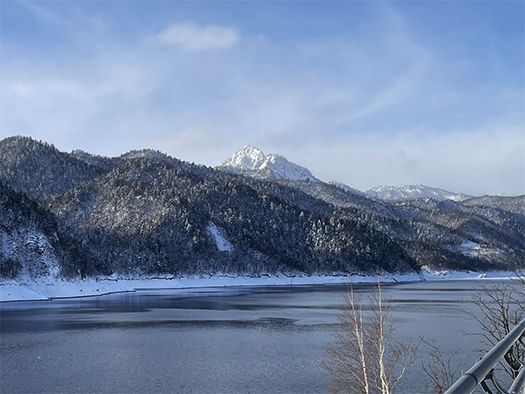
本日はやや時事的で政治外交的なテーマ。わたしの生きてきた時代はいわゆる戦後世界であり、日本の国際的スタンスは日米同盟をその最強基盤としてきた。自国の防衛についてアメリカという世界最強軍事国家との同盟関係で保全するという国家戦略。もちろん国内的には民主主義国家であり、反体制側として共産主義国家群と連携する勢力が批判勢力として存在してきた。権力監視者の役割を持つマスメディアもそういう批判スタンスに近いでしょう。
一時的な細川連立政権や民主党政権時代などでも日米同盟は、しかし堅固に維持されてきた。そういった国際的関係、バランスにとって昨日出されたバイデン政権による表題の決定は、微妙な「さざ波」を印象させられる。
次期トランプ政権は、この表題の一件について明確に「反対」の姿勢とされてきたので、そういうアメリカ側の権力意志が明確になってきたと言えるのではないか。アメリカ国内でも、同盟関係にある日本を代表する企業の自由な戦略的意思、ひいては日米の関係の安定性を勘案して受容する意見もあったなかで、日米関係に微妙に影響を及ぼす今回の否定的な決定がアメリカ政権側において下された。日本製鉄という一企業としては、企業の戦略的決定に照らして、まことに厳しい環境になっているだろうことは理解できる。
また、安倍元首相未亡人のトランプ訪問による効果として大統領就任式前の石破首相との会談も、トランプ側からは急転直下OKサインが出されていたけれど、先日日本外務省からはそれを否定し就任式後の2月以降の会談を目指すとの発表。一方で岩屋毅外相はアメリカよりも先に中国を訪問し、中国の王毅外相と3時間以上の異例な長時間会合を持ち、政権与党・自民党の党内にも十分に諮らずに、対中融和的な相互の入国管理体制を合意した。
このような石破政権の対応は、日本の多くの人びとにとって「多数派意思」と言えるのだろうか。また、日本の伝統的「反体制派」勢力ははたして積極的にこうした外交選択を望んでいるのだろうか?
わたし自身は新左翼学生運動に共鳴参加した過去もあるのですが、さまざまな人生経験を積層させてきて大枠としての戦後体制についてそれを基本的に支持するスタンスに立っています。日本が生き延びて行くには、やはり日米同盟基軸関係は最重視されるべきだと。しかししっかりと国論として論議された結果であれば、その結果は尊重したいとも考えます。ただ、今回の日米関係の「微妙化」は、目的的で信念を持った外交選択とはどうしても見なせない。そこに確固とした政治信条が反映されているとは思えない。
今後トランプ政権が正式に発足して、こういう状況がどのように展開していくのか、日本国民としては注視していくべきだろうと考えます。
English version⬇
The Biden administration has given a NO notice to NITTETSU’s acquisition of US Steel. What is the US-Japan relationship?
Steel is a nation. Even allies must clearly declare their rejection of the basic principle. Ripples in the future of Japanese capitalism. Is the administration aware of this situation? …
Today’s theme is somewhat topical and political diplomacy. I have lived in the so-called post-war world, where Japan’s international stance has been based on the US-Japan alliance as its strongest foundation. Japan’s national strategy is to safeguard its own defence through its alliance with the US, the world’s most powerful military state. Domestically, of course, Japan is a democratic state, and there have been critical forces on the anti-establishment side that are aligned with the communist group of states. The mass media, with its role as power watchdog, is probably close to such a critical stance.
The US-Japan alliance has been maintained, but firmly, even during the temporary Hosokawa coalition and Democratic Party of Japan (DPJ) governments. For such international relations and balance, the Biden Government’s decision on the title, issued yesterday, gives the impression of a subtle ‘ripple’.
The incoming Trump administration has been said to be clearly ‘against’ this title, so it can be said that the will to power on the part of the US has become clearer. The negative decision, which has a subtle impact on US-Japan relations, was taken by the US administration while there were opinions in the US that accepted the free strategic will of a company representing Japan’s alliance and, by extension, the stability of US-Japan relations. It is understandable that Nippon Steel Corporation, as a company, must be facing a very difficult environment in light of the company’s strategic decisions.
Also, as an effect of former Prime Minister Abe’s widow’s visit to the US, Trump had given the go-ahead for a meeting with Prime Minister Ishiba before the inauguration ceremony, but the Japanese Foreign Ministry recently denied this and announced that they would aim for a meeting after the inauguration ceremony, in February. Meanwhile, Foreign Minister Tsuyoshi Iwaya visited China before the US and had an unusually long meeting with Chinese Foreign Minister Wang Yi, lasting more than three hours, and agreed to a conciliatory mutual immigration control regime with China without fully consulting the ruling LDP party.
Can such a response by the Ishiba Government be regarded as the ‘majority will’ of many Japanese people? And do Japan’s traditional ‘dissident’ forces really actively want such a diplomatic option?
I myself was a sympathetic participant in the New Left student movement in the past, but I have accumulated many different life experiences and have a stance that basically supports the post-war system as a general framework. I believe that in order for Japan to survive, the keystone relationship of the US-Japan alliance should be given the highest priority. However, if the results are the result of a thorough discussion of the national debate, I would like to respect the results. However, the current ‘delicatisation’ of US-Japan relations cannot be seen as a purposeful and principled diplomatic choice. It does not seem to reflect any firm political beliefs there.
I believe that the Japanese people should keep a close eye on how this situation develops once the Trump administration is officially inaugurated in the future.
Posted on 1月 4th, 2025 by 三木 奎吾
Filed under: 状況・政治への発言







コメントを投稿
「※誹謗中傷や、悪意のある書き込み、営利目的などのコメントを防ぐために、投稿された全てのコメントは一時的に保留されますのでご了承ください。」
You must be logged in to post a comment.